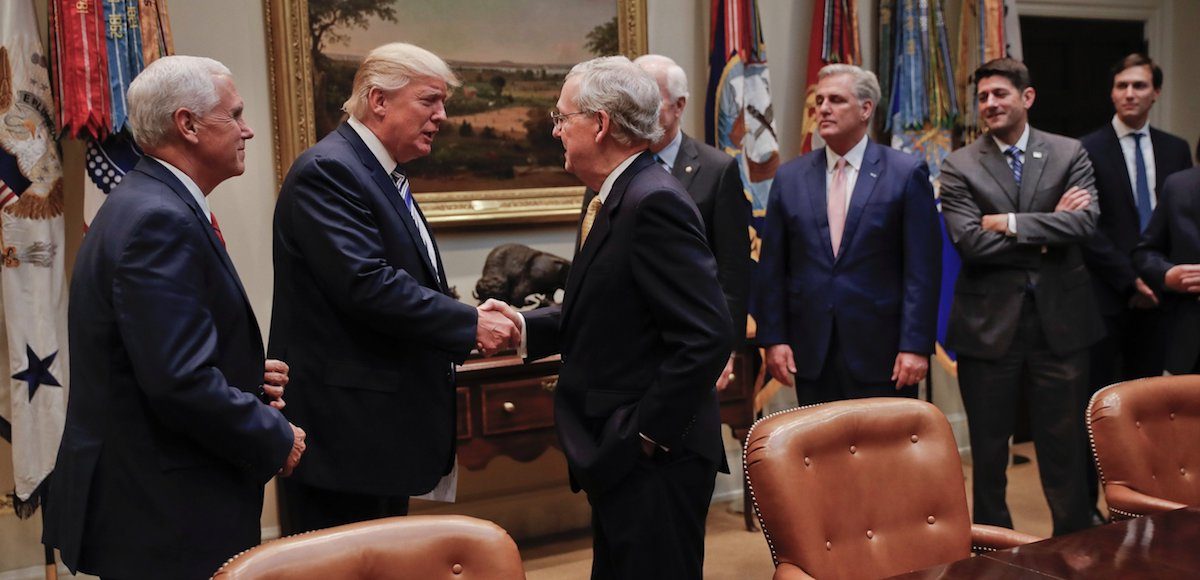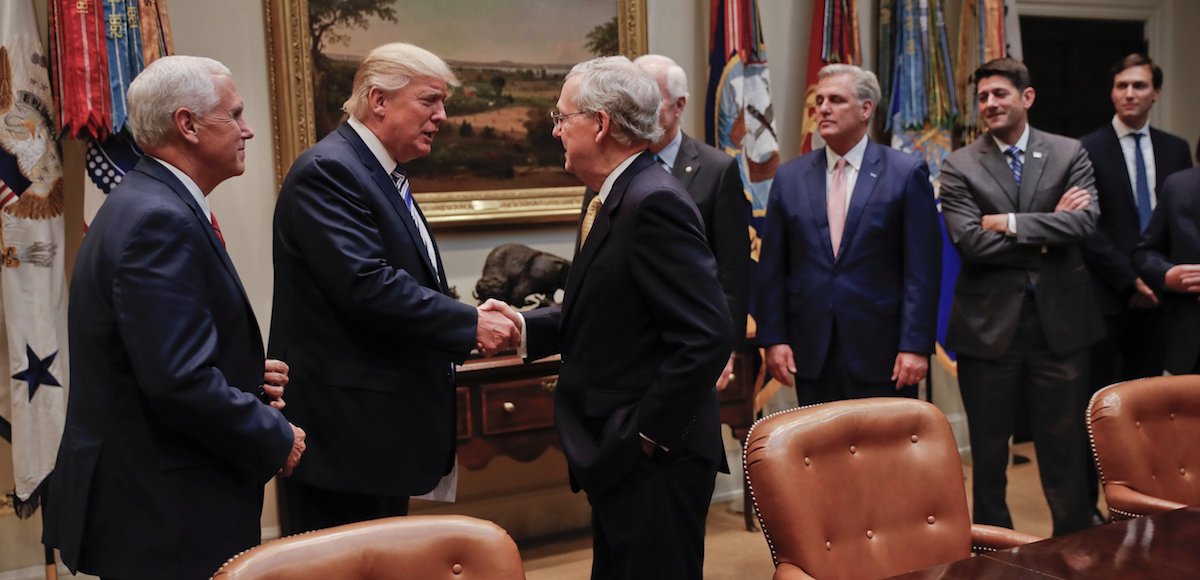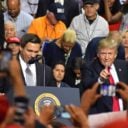

President Donald Trump, second from left, with Vice President Mike Pence, left, shakes hands with Senate Majority Leader Mitch McConnell, R-Kty., center, before the start of a meeting with House and Senate leaders at the White House. (Photo: AP)
Why were the Reagan tax cuts so successful? Why did the economy rebound so dramatically from the malaise of the 1970s?
The easy answer is that we got better tax policy, especially lower marginal tax rates on personal and business income. Those lower rates reduced the “price” of engaging in productive behavior, which led to more work, saving, investment, and entrepreneurship.

That’s right, but there’s a story behind the story. Reagan’s tax policy (especially the Economic Recovery Tax Act of 1981) was good because the President and his team ignored the class-warfare crowd. They didn’t care whether all income groups got the same degree of tax relief. They didn’t care about static distribution tables. They didn’t care about complaints that “the rich” benefited.
They simply wanted to reduce the onerous barriers that the tax system imposed on the economy. They understood – and this is critically important – that faster growth was the best way to help everyone in America, including the less fortunate.
Kimberley Strassel of the Wall Street Journal thinks that Donald Trump may be taking the same approach. Her column today basically argues that the President is making a supply-side case for growth. She starts by taking a shot at self-styled “reform conservatives.”
In May 2014, a broad collection of thinkers and politicians gathered in Washington to celebrate a new conservative “manifesto.” The document called for replacing stodgy old Reaganite economics with warmer, fuzzier handouts to the middle class.
She’s happy Trump isn’t following their advice. and I largely agree.
Donald Trump must have missed the memo. …Mr. Trump wants to make Reagan-style tax reform great again.
The class-warfare crowd is not happy about Trump’s pro-growth message, Kimberley writes.
The left saw this clearly, which explains its furious and frustrated reaction to the speech. …Democratic strategist Robert Shrum railed in a Politico piece that the “plutocrat” Mr. Trump was pitching a tax cut for “corporations and the top 1 percent” yet was getting away with a “perverted populism.” …Mr. Trump is selling pro-growth policies—something his party has forgotten how to do. …The left has defined the tax debate for decades in terms of pure class warfare. Republicans have so often been cast as stooges for the rich that the GOP is scared to make the full-throated case for a freer and fairer tax system.
…Mr. Trump isn’t playing this game—and that’s why the left is unhappy. The president wants to reduce business tax rates significantly… He wants to simplify the tax code in a way that will eliminate many cherished carve-outs. …his address was largely a hymn to supply-side economics, stunning Democrats who believed they’d forever dispelled such voodoo. …Mr. Trump busted up the left’s class-warfare model. He didn’t make tax reform about blue-collar workers fighting corporate America. Instead it was a question of “our workers” and “our companies” and “our country” competing against China. He noted that America’s high tax rates force companies to move overseas. He directly and correctly tied corporate rate cuts to prosperity for workers, noting that tax reform would “keep jobs in America, create jobs in America,” and lead to higher wages.
Amen. That’s the point I made last week about investment being the key to prosperity for ordinary people.
Ms. Strassel concludes by putting pressure on Congress to do its job and get a bill to the President’s desk.
His opening salvo has given Republicans the cover to push ahead, as well as valuable pointers on selling growth economics. If they can’t get the job done—with the power they now have in Washington—they’d best admit the Democrats’ class-warfare “populism” has won.
I largely agree with Kimberley’s analysis. Trump’s message of jobs, growth, and competitiveness is spot on. His proposal for a 15% corporate rate would be very good for the economy. And I also agree with her that it’s up to congressional Republicans to move the ball over the goal line.
But I also think she’s giving Trump too much credit. As I point out in this interview, the Administration isn’t really playing a major role in the negotiations. The folks on Capitol Hill are doing the real work while the President is waiting around for a bill to sign.
Moreover, I’ve been repeatedly warning that there are some very difficult issues that Congress needs to decide.
Since big companies will benefit from a lower corporate rate, will there be similar tax relief for small businesses that file using “Schedule C” of the individual income tax? That’s a good idea, but there are big revenue implications.
Since Republicans–and this definitely includes Trump–are weak on spending, will they achieve deficit neutrality (necessary for permanent reform) by eliminating loopholes? That’s a good idea, but interest groups will resist.
Unfortunately, the White House isn’t offering much help on these issues. The President simply wants big tax cuts and is leaving these tough decisions to everyone else.






